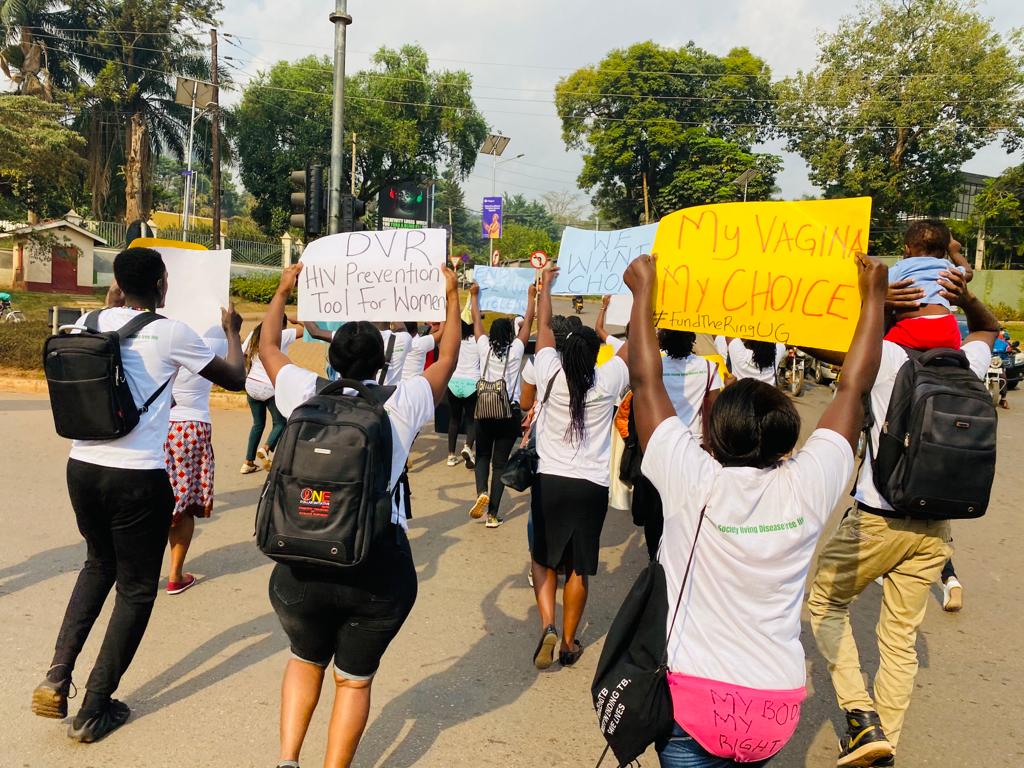African feminists and HIV prevention advocates are united in their advocacy for ensuring African women and girls in their diversity have a range of HIV prevention options to choose from, including the dapivirine vagina ring (ring). While several African countries have approved the licensure of the ring and the WHO has included the ring on the list of essential medicines, some donors are backing away from their support of the ring for rollout beyond the planned Introductory studies as well as support for future research in longer acting rings. Advocates have called for accelerated access to the ring and not to lose sight of the importance of championing choice and respecting the investment African women and communities have made in bringing the ring to this point. We applaud UNAIDS for promptly responding to a call from advocates to engage on this with their convening of a meeting on 27 & 28 June in Johannesburg to discuss advocacy for ensuring women and girls have a choice and a voice. At the meeting, UNAIDS executive director Winnie Byanyima accepted the challenge to join women activists to call for accelerated global support and access to long-acting HIV prevention tools for women, including the ring.

We hold UNAIDS leadership to their commitments:
- To address inequalities, policy, and structural barriers to access the new long-acting HIV prevention tools, including the ring, through the UNAIDS Global HIV Prevention Strategy
- For the UNAIDS executive director, Winnie Byanyima, to champion women-led HIV prevention in the continent and beyond, being a voice for African women,
- To open doors with donors – mainly PEPFAR and USAID – and further the discussion for a change of policy that will allow access and support to roll out the Dapivirine Ring,
- For the UNAIDS Regional East and Southern Africa office to work with advocates in the region to champion women-led prevention campaigns for the ring and other HIV prevention options
- To integrate a stronger HIV prevention focus into the UNAIDS regional East and Southern African strategy which is in the process of development.
- To ensure that young women have access to spaces where decisions are made that affect their choices.
UNAIDS committed to a follow-on meeting at AIDS2022 to discuss the next steps and to ensure that the call
for choice resounds through the conference halls. At the same time, we commend WHO in their statement of continued support of their 2021 recommendation for the ring as an additional prevention option for women at substantial risk of HIV; and the Global Fund for their inclusion of the dapivirine ring in their procurement catalog. And we applaud the African governments who have approved the ring thus far and see the importance of listening to the communities who have said that choice matters in HIV prevention. We call on other African governments to approve the ring and ensure that young women in particular have options to choose from that can work in their lives.
Expanded HIV prevention options are critical for women in east and southern Africa where HIV is persistent public health, reproductive justice, and human rights issue for girls and women. We call on all community, national, regional and global leaders to join us in ensuring young women have a voice and a choice in protecting their lives!
Authors
Yvette Raphael, Advocates for the Prevention of HIV in Africa, South Africa
Nomfundo Eland, Emthojeni, South Africa
Lillian Mworeko, ICW East Africa, Uganda
Vuyiseka Dubula, AEDC, South Africa
Chilufya K Hampongo, Treatment Advocacy and Literacy Campaign, Zambia
Maureen Luba, AVAC, Malawi
Rosemary Mburu, WACI Health, Kenya
Definate Nhamo, PZAT, Zimbabwe
Manju Chatani-Gada, AVAC, USA
Georgina Caswell, GNP+, South Africa
Dr. Lilian Benjamin Mwakyosi, DARE, Tanzania.
Joyce Nganga, Africa Free of New HIV Infections (AfNHi)
Gloria Mululu,Africa Free of New HIV Infections (AfNHi)



